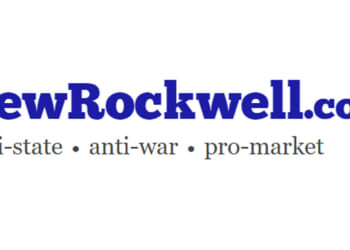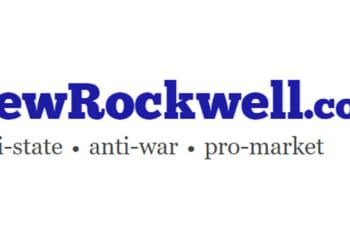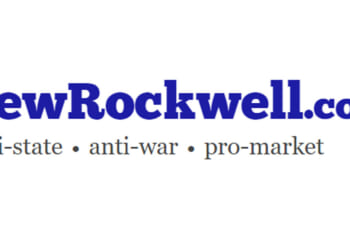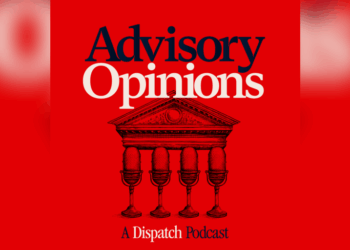Editorial note: this essay originally appeared at The Giving Review.
Andrew Grossman is a partner at the BakerHostetler law firm’s office in Washington, D.C. He has appeared before the U.S. Supreme Court, nearly all of the federal courts of appeals, as well as some state appellate courts. His practice includes representation of and providing counsel to nonprofit organizations, including private-foundation grantmakers and grant recipients.
Grossman is also a senior legal fellow at The Buckeye Institute and an adjunct scholar at the Cato Institute’s Robert A. Levy Center for Constitutional Studies. He has been a fellow and policy analyst at The Heritage Foundation’s Meese Center for Legal and Judicial Studies, as well.
He was kind enough to join me for a recorded conversation last week. The just less than 17-and-a-half-minute video below is the first part of our discussion; the second is here. During the first part, he talks about his practice; the increased scrutiny of the nonprofit sector; the potential effects of that scrutiny on civil society more generally; more specifically, the Trump administration’s recently reported plans to enhance the Internal Revenue Service’s (IRS’s) criminal-investigative division, including to subject philanthropies to even more, in this case legal scrutiny; and the potential effects of that enhancement on foundations and nonprofits.
Pattern of escalation
The increased scrutiny has “been a long time coming,” Grossman tells me. “It’s kind of like the frog in the in the boiling water, right?
“This is really a problem that I want to say is maybe 15 years in the making,” he continues. “We saw the initial stirrings of this mostly at the state level, through what seemed like just random eruptions of enforcement action” against “certain policy-engaged and sometimes politically engaged nonprofits.
“I think for a lot of people, the first time this really came on everyone’s radar was with some of the ballot referendums over same-sex marriage” and “the lengths that states went to” in trying to affect them, including “to release and publicize donor information for the people involved in supporting or opposing particular initiatives,” according to Grossman. “Then it blew up even more with the John Doe investigation in Wisconsin, where a rogue prosecutor out of Milwaukee basically shut down all of conservative advocacy within the state based on just a completely faulty and made-up interpretation of state law.”
He says,
There’s just been this pattern of escalation over the years, where you’ve seen mostly blue states and their officials targeting policy-based and politically active nonprofit groups as part of just the back and forth of political warfare, but it’s not between politicians. Increasingly, it’s taking aim at civil society.
The only “reason that the mainstream media is finally covering this is because the Trump administration has been turning its sights mostly on left-leaning and Democrat Party-aligned philanthropy organizations,” Grossman notes, including “ones that may have links to criminal activities that are taking place—riots in different cities, civil unrest, disorder, some of the assaults on” Immigration and Customs Enforcement (ICE) officers. “It really has brought new attention to this issue, but it isn’t a new issue.”
Asked whether the problems facing the sector arising from its politicization date back longer than 15 years, perhaps even to those leading up to the 1969 Tax Reform Act from the Ford Foundation’s election-adjacent grantmaking, among other things, he answers, “I think there is a difference in kind.” He then himself asks, “Has the government tried to push independent voices out of the advocacy space and tried to monopolize more of the discourse for itself and for current elected officials? I mean, we’ve seen that since at the least the Johnson Amendment. That is nothing new.
“What I think what is new is the wielding of law-enforcement authority” against nonprofits of the kind from the past 15 years, Grossman says. “Government officials may disagree with how” their activities are “carried out, or who’s carrying them out,” or “are involved in public policy and … speak out and educate the public and, in some cases, advocate views that certain politicians disagree with,” but that doesn’t justify the actions taken against them that he described.
“That’s what’s new and that’s, to my mind, what’s really troubling. It ultimately implicates and puts at risk the very foundation of our civil society and just so much societal benefit that we’ve gotten from it over, well, gosh, since before even the existence of the United States.”
Inquiries, investigations, illegality, and ideology
We discuss the October 15 Wall Street Journal article “Trump Team Plans IRS Overhaul to Enable Pursuit of Left-Leaning Groups,” which reports that the “Trump administration is preparing sweeping changes at the Internal Revenue Service that would allow the agency to pursue criminal inquiries of left-leaning groups more easily,” including by installing “allies of President Trump at the IRS criminal-investigative division, or IRS-CI, to exert firmer control over the unit and weaken the involvement of IRS lawyers in criminal investigations.”
“Every federal agency pretty much nowadays has criminal investigators, from the” Environmental Protection Agency “ to the forest service, and the IRS is no exception,” Grossman tells me. “The CI division of the IRS pursues potential criminal charges” that “can involve finance-based crimes that then overlap in various ways with tax law. … [T]hese can often be part of broader investigations that may implicate and involve other components of the government.”
He notes that, according to the Journal article, “the IRS apparently looked into using what’s known as the doctrine of illegality and determined that, at least at the federal level, that was a little bit too cumbersome to operate on the timeline that they were hoping to operate.” The doctrine of illegality, he describes, “holds that a charity can’t pursue either unlawful purposes or illegal purposes.”
The definition of “illegal” “is straightforward,” Grossman says, but
things that are against public policy also run afoul of the doctrine against illegality. … The classic example is a school for pickpockets. It’s certainly legal to operate a school, but that’s clearly not going to be in the public interest and it’s not something that should be subsidized through the tax code or through the way that charities are addressed under state law.
While the doctrine “hasn’t really been put to all that much use,” he continues, the subject has “really been the focus of increasing tension in recent years, particularly because of so many of the activities that we’ve seen” and “the Trump Administration is focusing on now—the seeming relationships between many of the large progressive donors and progressive foundations, and groups that in some instances appear to be involved in criminal activity.”
Grossman acknowledges the focus might appear “a little bit one-sided,” saying conservative and free-market foundations
don’t tend to have relationships with community-organizing-type groups. They don’t tend to have relationships or fund groups that engage in direct action. They don’t tend to fund or have relationships with groups that operate in areas overseas that are controlled by foreign terrorists.
And so there really is this asymmetry, where there is this whole set of potential illegality issues that is, I think, a very serious matter for a lot of the progressive philanthropic movement, but doesn’t necessarily have a lot of resonance on the other side of the fence, just because they pursue different strategies.
Asked whether that might plausibly lead one to conclude there’s ideologically motivated enforcement or application of the law, he says,
It’s really an application of neutral principles because it’s always been the principle that … charitable funds shouldn’t be used for unlawful conduct. … It’s not something, I think, that’s appropriate for a charity to do—to turn a blind eye to grant recipients using the money, resources, connections, and so forth to carry out unlawful activities. I think there’s been this nonchalance among a lot of the progressive-philanthropy community, kind of just looking the other way or laughing it off.
That’s “detrimental to them,” Grossman continues, “just in terms of their own missions, because it’s something that fosters distrust and that fosters, I think appropriately, public skepticism about what it is that they’re trying to pursue.”
In the conversation’s second part, he talks about the government’s high burden to prove a grantmaker’s criminal liability for the activities of a grantee, the narrow circumstances under which any such liability would be found, and steps to avoid risking liability.












